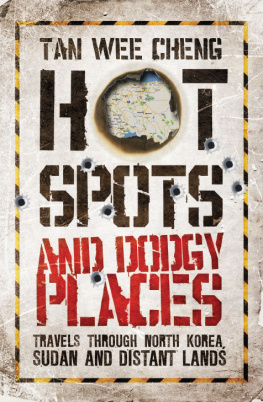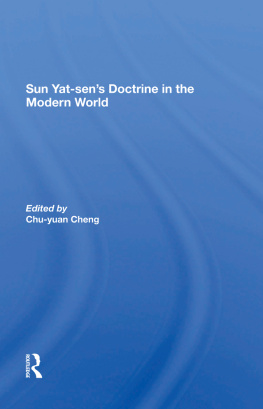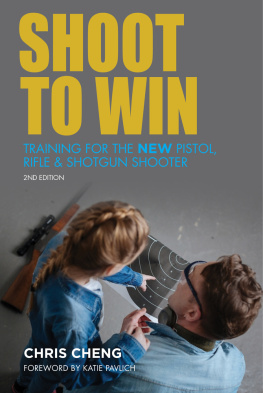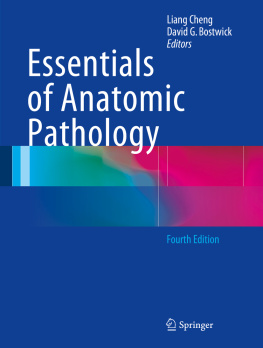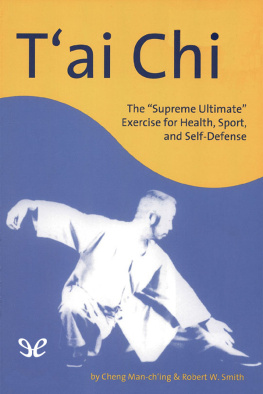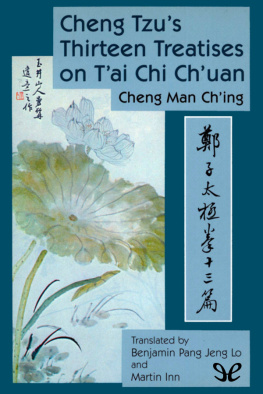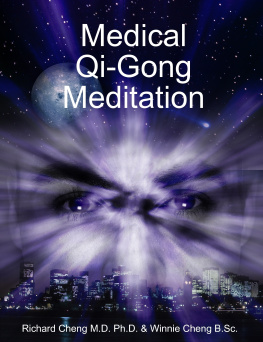Tan Wee Cheng - Hot Spots and Dodgy Places
Here you can read online Tan Wee Cheng - Hot Spots and Dodgy Places full text of the book (entire story) in english for free. Download pdf and epub, get meaning, cover and reviews about this ebook. year: 2012, publisher: Marshall Cavendish International, genre: History. Description of the work, (preface) as well as reviews are available. Best literature library LitArk.com created for fans of good reading and offers a wide selection of genres:
Romance novel
Science fiction
Adventure
Detective
Science
History
Home and family
Prose
Art
Politics
Computer
Non-fiction
Religion
Business
Children
Humor
Choose a favorite category and find really read worthwhile books. Enjoy immersion in the world of imagination, feel the emotions of the characters or learn something new for yourself, make an fascinating discovery.
- Book:Hot Spots and Dodgy Places
- Author:
- Publisher:Marshall Cavendish International
- Genre:
- Year:2012
- Rating:5 / 5
- Favourites:Add to favourites
- Your mark:
- 100
- 1
- 2
- 3
- 4
- 5
Hot Spots and Dodgy Places: summary, description and annotation
We offer to read an annotation, description, summary or preface (depends on what the author of the book "Hot Spots and Dodgy Places" wrote himself). If you haven't found the necessary information about the book — write in the comments, we will try to find it.
Hot Spots and Dodgy Places — read online for free the complete book (whole text) full work
Below is the text of the book, divided by pages. System saving the place of the last page read, allows you to conveniently read the book "Hot Spots and Dodgy Places" online for free, without having to search again every time where you left off. Put a bookmark, and you can go to the page where you finished reading at any time.
Font size:
Interval:
Bookmark:

Cover art by Opal Works Co. Limited
Design by Rachel Chen
Copyright 2009 Marshall Cavendish International (Asia) Private Limited
Reprinted 2010
Published by Marshall Cavendish Editions
An imprint of Marshall Cavendish International
1 New Industrial road, Singapore 536196
All rights reserved
No part of this publication may be reproduced, stored in a retrieval system or transmitted, in any form or by any means, electronic, mechanical, photocopying, recording or otherwise, without the prior permission of the copyright owner. Request for permission should be addressed to the Publisher, Marshall Cavendish International (Asia) Private Limited, 1 New Industrial Road, Singapore 536196. Tel: (65) 6213 9300, Fax: (65) 6285 4871. E-mail:
The publisher makes no representation or warranties with respect to the contents of this book, and specifically disclaims any implied warranties or merchantability or fitness for any particular purpose, and shall in no event be liable for any loss of profit or any other commercial damage, including but not limited to special, incidental, consequential, or other damages.
Other Marshall Cavendish Offices
Marshall Cavendish International. PO Box 65829, London EC1P 1NY, UK Marshall Cavendish Corporation. 99 White Plains Road, Tarrytown NY 10591-9001, USA Marshall Cavendish International (Thailand) Co Ltd. 253 Asoke, 12th Flr, Sukhumvit 21 Road, Klongtoey Nua, Wattana, Bangkok 10110, Thailand Marshall Cavendish (Malaysia) Sdn Bhd, Times Subang, Lot 46, Subang Hi-Tech Industrial Park, Batu Tiga, 40000 Shah Alam, Selangor Darul Ehsan, Malaysia
Marshall Cavendish is a trademark of Times Publishing Limited
National Library Board Singapore Cataloguing in Publication Data
Tan, Wee Cheng.
Hot spots and dodgy places :travels through North Korea, Sudan and distant lands /
by Tan Wee Cheng. Singapore : Marshall Cavendish Editions,c2009.
p. cm.
eISBN-13 : 978 981 261 969 3 (pbk.)
1. Tan, Wee Cheng Travel. 2.Voyages and travels. I. Title.
G465
910.4 dc22 OCN427798416
Printed in Singapore by Craft Print International Ltd
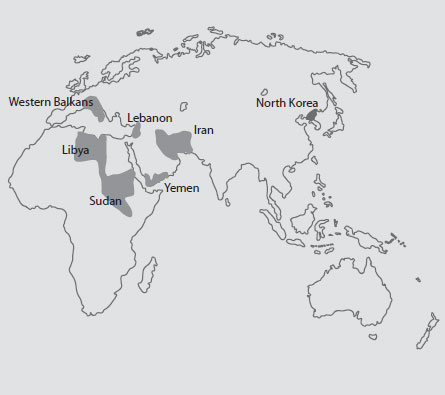

My thanks to my many friends scattered across the world who have assisted and advised me during my journeys; those who had accompanied meE Kelly Cheng, Gary Choa, Kenneth Loh, Tan Eng Teck and Kris YapE in what otherwise could have been lonely ventures to remote parts of the world. Also thank you to those among my friends who have encouraged me not only in my travels, but also helped to turn this book into reality, in particular, Vernon Voon, who spent many tortuous days reviewing and proofreading the book. And to my parents and sister, who have been most worried for my safety and well-being during the past decade or so of my nomadic wanderings. Thank you, everyone!
While the stories in this book are records of my travels and encounters, certain names and circumstances have been modified to preserve the privacy of those concerned.

All preconceived notions and beliefs concerning cosmology, history, politics and society were made ridiculous by the new discoveries. The world had been opened up by the fanatical self-confidence of visionaries, and had proved to be wilder than their wildest fancies. Now kingdoms were to be had for the taking.
EW. Raleigh, The English Voyages of the Sixteenth Century
North Korea, classified as a sponsor of terrorism by the US for most of the last few decades. Seen by the West as a brain-washed state ruled by what the West sees as a reclusive, isolationist dictator who occasionally threatens to nuke all his enemies.
Sudan, seen by many as a religious fundamentalist state ruled by brutal rulers accused of murdering hundreds of thousands of innocent civilians.
In short, North Korea and Sudan are at the pinnacle of global hot spots, the very opposite of nice, gentle Orchard Road in Singapore.
Why would anyone want to go to North Korea and Sudan?

My first foray to a political hot spot began one morning in late May 1995, in Ljubljana, when I got into a train for Zagreb, capital of Croatia. I was still a novice traveller, on my first journey to Eastern Europe. I had begun my journey in Vienna and gone south to Slovenia. My plan was to make my way to Hungary, Romania, Bulgaria and Turkey, skirting around the war-torn mess that was Croatia, Serbia and the other former Yugoslav states further south. In fact, dad, who was getting concerned about my never-ending nomadic inclinations, had warned, Dont you step into Yugoslavia. Too dangerous!
But Zagreb is only 130km away from the cafs of Ljubljana, the idyllic capital of Slovenia, the northernmost of the former Yugoslav states. Slovenia had gotten away free from the clutches of the Serbian generals after a ten-day war in 1991, whereas Croatia and Bosnia-Herzegovina were now bitter battlegrounds. I thought hard about whether to cross the border, but what the heck, a ceasefire had been in force for two weeks . if I didnt go then, when would I do it?
And so I got onto a quiet train, during which I learned proper Serbo-Croat pronunciation from a Bosnian refugee. Marko, 37 years old, who once lived in Sarajevo but was now a refugee in Zagreb; a jovial fellow whose jokes I only half-understood due to his thick Slavic accent. Even then, it was that one-hour long pronunciation lesson that taught me the finer tones of the Slavic vics and js. Marko also reminisced about the green pines and spires and minarets of multi-ethnic Sarajevo, which sparked off dreams of visiting this former Winter Olympic city.
bombed the city when Croatian forces took over the small Serb region of Western Slavonia in a sudden offensive which was their first major military victory in the war.
The chessboard national flag of Croatia flew everywhere while a band played in the central park. Soldiers patrolled streets marked by massively-fortified garrisons at every corner. Sandbags and barbwire were commonplace. Yet this beautiful near-Parisian city had a surreal atmosphere, as teenagers roller-bladed in the park, and pensioners and lovers strolled along its wide boulevards sparkled with cafs, like people do everywhere else in the world. Little did I know that in less than five months, the Croatian-Bosnian forces would rout the Serbian army, and the war would be over in Croatia and Bosnia.
There werent many tourists I only saw one, an African-American who jokingly wondered when the next bomb would fall. The cheapest hotel in town with available rooms was charging US$100 per night refugees occupied the rest, and only diplomats and peacekeepers on expense accounts were in town. I contemplated going south to Dubrovnik but it was too dangerous then. If the ceasefire had broken down, I would have been trapped in a region surrounded by enemy artillery. And so I hopped onto an overnight train to Budapest, Hungary.
Hot spot. A google search revealed a website that defines it as a place of political unrest and potential violence, although it is a term that has increasingly been taken to refer to places where one could surf the internet through wireless means.
Next pageFont size:
Interval:
Bookmark:
Similar books «Hot Spots and Dodgy Places»
Look at similar books to Hot Spots and Dodgy Places. We have selected literature similar in name and meaning in the hope of providing readers with more options to find new, interesting, not yet read works.
Discussion, reviews of the book Hot Spots and Dodgy Places and just readers' own opinions. Leave your comments, write what you think about the work, its meaning or the main characters. Specify what exactly you liked and what you didn't like, and why you think so.

